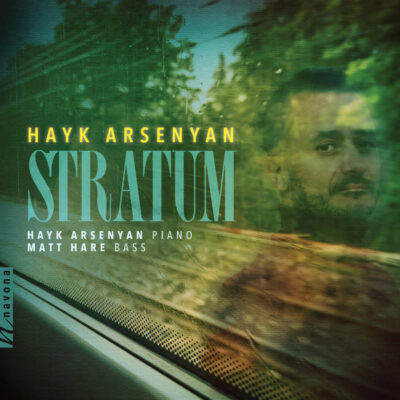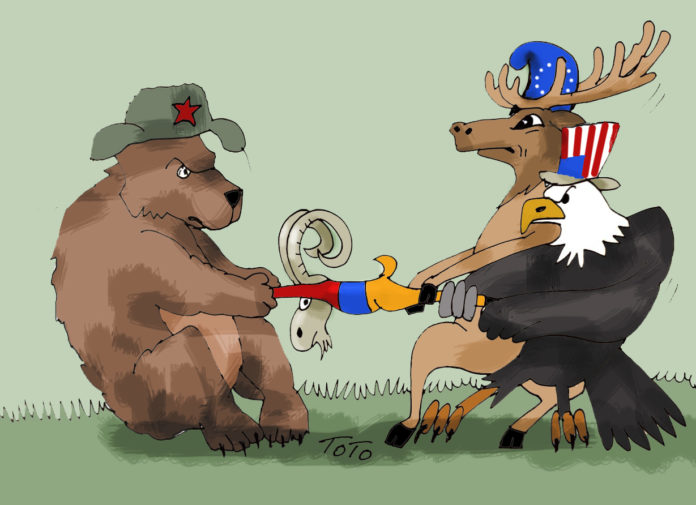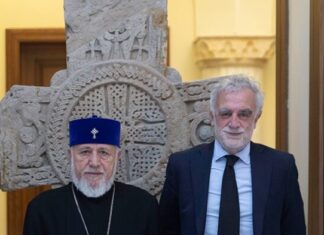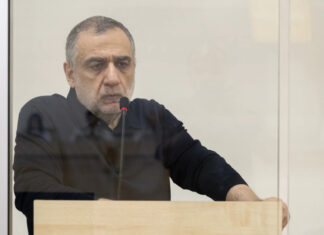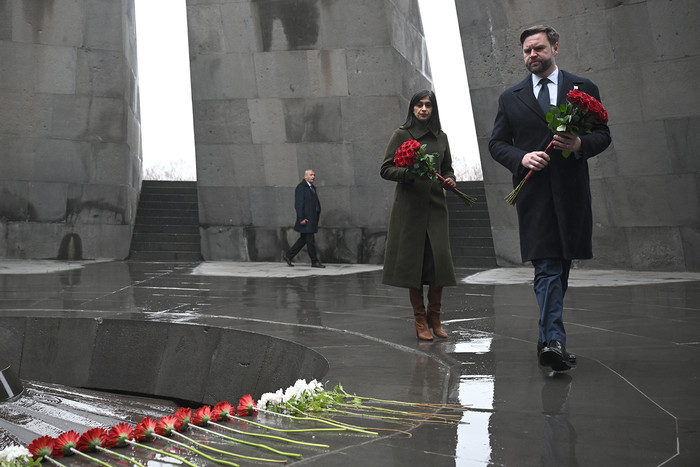Armenia is currently in the throes of a dilemma, pondering who will sign the fateful peace treaty with Azerbaijan, which may amputate Armenia’s territory, in exchange for the elusive hope that security may return to its borders. Azerbaijan’s policy, with regards to Armenia, is fueled by the hatred shown recently to the world through videos of the barbaric torture, murder and dismemberment of an Armenian woman soldier and the group execution of Armenian POWs, recently released in a grisly clip, which warrants a legal response as war crimes.
The situation is very fluid in the Caucasus political sphere, favoring the Baku-Ankara tandem, at the moment. Turkey and Azerbaijan are not seeking stability and peace in the region; rather, they are banking on the balance of power which fluctuates daily, to extract maximal concessions from Armenia. Turkey, in particular, has long tentacles reaching the region. One goal is to coerce Armenia to provide an extraterritorial land passage to serve the former’s pan-Turanian project, while a greater one is to eliminate Armenia from the face of the globe altogether, and thus render the case of the Genocide defenseless.
The issue of the Armenian Genocide is a monumental legal hurdle on Turkey’s path to achieve its global ambitions, which include membership in the European Union and on the United Nations Security Council. As long as there is an Armenian state which can espouse legally the cause of the Genocide, Turkey will be haunted by that hurdle. There is no clearer example than the case of the Assyrians to show what a big difference a state backing claims makes in the global scene. Wrongfully, Prime Minister Nikol Pashinyan has relegated the matter to the diaspora, in the hope of appeasing Turkey. However, the Genocide is the legal burden of the Armenian state.
At this point, Armenia is caught in the turbulence of the Caucasus, which Russia considers its zone of influence, while the West is trying to dislodge the latter, using the conflicting interests in the region to its advantage.
For a long time, Moscow took for granted that it had Armenia in its fold, no matter what, particularly using the historical fears engendered by Turkey. Russia is so engrained in Armenia’s political, social and military life that it would be almost impossible to extricate the country from its embrace; and there would be no reason to part from Moscow’s sphere, were it not for Russia’s abandonment of its treaty obligations vis-à-vis Azerbaijan’s aggression. Perhaps Russia expected some sympathy from Armenia about its own current predicament, in exchange for its historic support of Armenia, but the latter no longer can afford that sympathy, when it has been facing an existential threat without receiving any help.
Russian statesmen, from President Vladimir Putin down to Foreign Minister Sergey Lavrov and Russian Ambassador to Armenia Sergey Kopyrkin, continue to tout the smokescreen of Russia’s role in halting the 44-Day War or the recent Azerbaijani aggression on September 13. Such talk may satisfy their desire for political cover but does not help the 4,800 victims of the 2022 war or the 207 casualties of the recent flareup.
